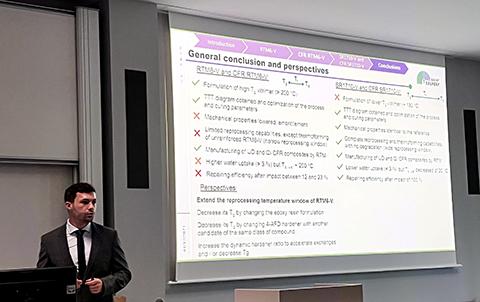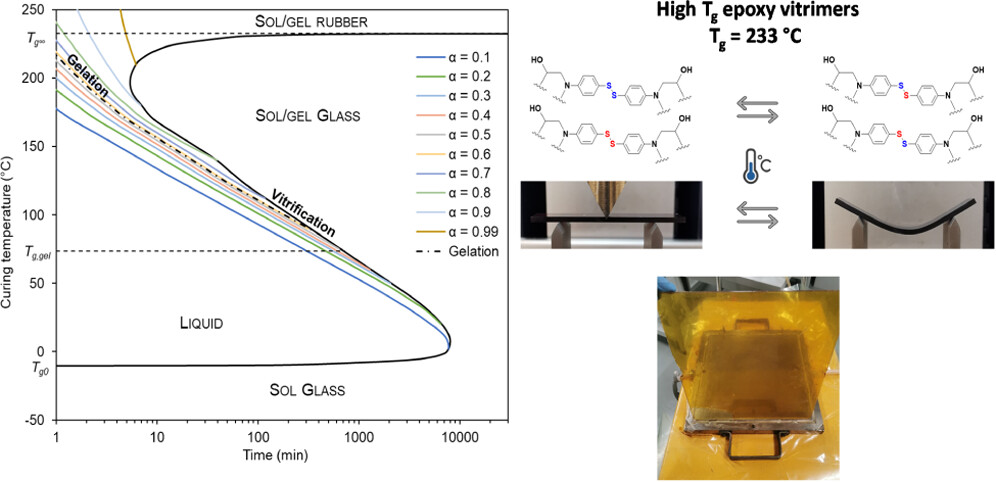Vincent Schenk, PhD student at Softmat, has defended his thesis on composite materials for aeronautical applications

Vincent carried out his research in the P3R team at the Softmat laboratory, in close collaboration with the IRT Saint Exupéry and the Clément Ader Institute.
On 1st of December, he defended his thesis entitled: "High performance composite materials with vitrimer matrices for aeronautical applications"
The aerospace industry is increasingly using thermoset matrix composites due to their remarkable properties and versatility. However, the challenge lies in their limited recyclability, which poses a significant hurdle in transitioning to a circular economy. A new class of materials, known as vitrimers, with properties similar to thermoset materials at service temperatures but with the capability to be reshaped and repaired at high temperatures due to their dynamic covalent bonds, appears as a promising alternative.
The work primarily focuses on high glass transition temperature (Tg) vitrimer matrices for high-performance applications, such as aerospace structural components, which have received limited attention in the literature. Similarly, the production of vitrimer composites using industrial composite manufacturing processes like resin transfer moulding (RTM) and the optimization of process parameters for vitrimer systems have been underexplored.
Initially, a high Tg vitrimer (>200°C) was formulated using commercial monomers. The study of its physico-chemical, rheological, and cure kinetic properties led to the development of the very first Time-Temperature-Transformation (TTT) diagram for a vitrimer system. This study facilitated the optimization of process parameters and polymerization cycles for implementation in an RTM process. Vitrimer properties were highlighted through stress relaxation and thermoforming experiments. However, some limitations emerged due to the narrow reprocessing window between Tg and degradation temperature. The use of this vitrimer matrix in the fabrication of composite materials via RTM revealed excellent mechanical resistance and the preservation of mechanical properties even after water saturation.

Additionally, this work explored the limits of very high Tg vitrimer composites with a focus on their repair and thermoforming capabilities.
To overcome these limitations, a similar study was conducted in the second phase, focusing on a new vitrimer matrix with a lower Tg. The study of its properties led to the development of a TTT diagram similar to the first approach. Expanding the reprocessing window between Tg and the degradation temperature was proved beneficial for vitrimer properties, resulting in satisfactory thermoforming capability and complete repair efficiency after impact.
Highlights of the thesis:
Vincent won the 1st price PhD student contest SAMPE France and then was awarded an honourable mention during the 37th International SAMPE Europe Students Seminar in Hambourg in 2022.
Many congratulations to Vincent for the quality of his work!


